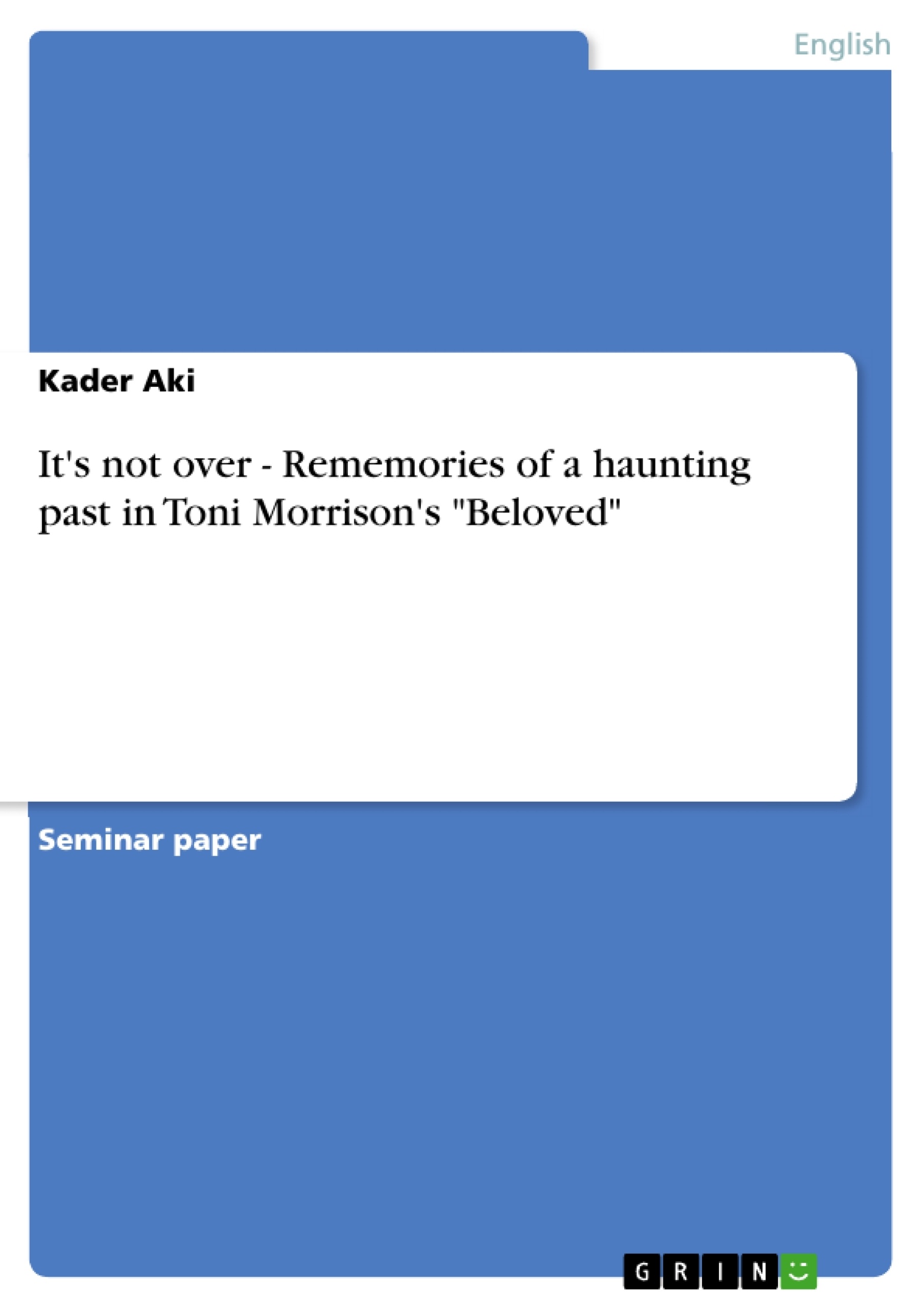The horrors of slavery are commonly dismissed with comments such as “it’s over; it’s done”. However, with Beloved Toni Morrison demonstrates how history is not over and done with. Morrison allows the reader to re-vision and understand African-American history through nonwestern eyes by re-telling history through the lives of former African slaves.
American history is reconceptualized by this novel, which is concerned with historical transmission of a racial trauma. "Beloved" places historical trauma at the center of American race relations and reveals two denials of historical trauma through unveiling the two types of violence; the interracial and ‘intraracial'. The racist institutional power denied the violation of African American lives, and the black society refused to admit the truth of African American familial self-destruction and self-hatred. Morrison’ s Beloved is a revelation of this trauma portrayed by apocalyptic events, such as infanticide.
Infanticide is a motif that occurred already before Christ. Children were seen as properties of their parents who thought to have the ‘right’ to kill them for example because of poverty.
This paper tries to analyse and explain the infanticide which Sethe commits, from different points of view. It shows how Sethe ‘legitimates’ or explains her act. This is followed by a section with a closer focus on the phenomenon trauma and healing. The last chapter discusses weather the characters surrounding her have the right to judge her or not.
Inhaltsverzeichnis (Table of Contents)
- Introduction
- The Infanticide in Beloved
- Sethe's Reasons to Kill Her Child
- The Second Rescue of Beloved in Comparison to the First Rescue
- The Necessity of the Rescue's Repetition for Sethe's Healing
- The Paradoxes in the Second Rescue - A Different Interpretation -
- Beating Back the Past
- Judgement of the Infanticide by Different Characters
- The Point of View of Schoolteacher and White People
- Stamp Paid, Ella, and the Community of Women
- Paul D's Reaction to Sethe's Dark Secret
- Conclusion
Zielsetzung und Themenschwerpunkte (Objectives and Key Themes)
This paper explores the complex theme of infanticide in Toni Morrison's Beloved, analyzing the act from various perspectives and examining the role of trauma and healing. It aims to provide a nuanced understanding of Sethe's motivations, the historical context of slavery, and the reactions of those surrounding her.
- The justification of infanticide as a means of preventing the horrors of slavery.
- The impact of historical trauma on individual and collective memory.
- The complexities of motherhood and maternal love in the context of slavery.
- The societal and cultural implications of racial violence and oppression.
- The process of healing and the struggle to reconcile with a haunting past.
Zusammenfassung der Kapitel (Chapter Summaries)
- The introduction sets the stage for the discussion, highlighting the importance of understanding African-American history through the lens of the novel. It introduces the concepts of historical transmission and the denial of historical trauma, particularly in relation to the violence inflicted upon African Americans.
- The second chapter delves into the act of infanticide itself. It examines Sethe's reasons for killing her child, exploring the psychological and historical factors that led to her decision. The chapter also highlights the complexities of motherhood and the profound impact of slavery on family structures.
- The chapter titled "Beating Back the Past" focuses on the challenges of confronting and dealing with historical trauma. It explores the ways in which individuals and communities grapple with painful memories and the enduring consequences of slavery.
- The fourth chapter examines how different characters react to the infanticide. It analyzes the perspectives of white characters, the African American community, and specific individuals like Stamp Paid, Ella, and Paul D.
Schlüsselwörter (Keywords)
The central keywords of this paper include: infanticide, slavery, historical trauma, African American history, motherhood, healing, memory, violence, oppression, and denial. These terms highlight the key themes and concepts explored in the novel and within this analysis.
Frequently Asked Questions
What is the central theme of Toni Morrison's "Beloved"?
The novel explores the lasting impact of historical trauma from slavery, the complexities of motherhood under oppression, and the process of healing from a haunting past.
Why does the character Sethe commit infanticide?
Sethe kills her child to save her from the horrific life of slavery, viewing the act as a desperate form of protection and maternal love.
How does Morrison depict historical trauma?
Morrison uses "rememory" to show that history is not "over," but continues to haunt and shape the lives of former slaves through interracial and intraracial violence.
What perspectives on Sethe's act are analyzed in the paper?
The paper examines the viewpoints of the white "schoolteacher," the African American community (including Stamp Paid and Ella), and Paul D's reaction to her secret.
What is the role of the community in the novel?
The community of women and figures like Stamp Paid play a crucial role in the collective memory, judgment, and eventual path toward healing.
- Quote paper
- Kader Aki (Author), 2003, It's not over - Rememories of a haunting past in Toni Morrison's "Beloved", Munich, GRIN Verlag, https://www.grin.com/document/57395



